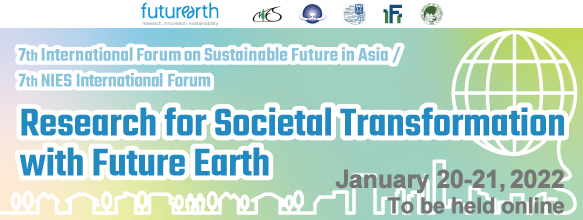January 20-21, 2022 Online (Zoom)
- Top
- About
- Program
- Speakers
- Event Report
| Date | January 20-21, 2022 |
|---|---|
| Venue | Online (Zoom) |
| Registration | Free Day1: Open Symposium | zoom webinar Registration 【finished】 Day2: Expert Sessions | zoom meeting Registration 【finished】 |
| Abstract book | Abstract Book_pdf (920KB) |
| Report | Report_pdf (1.4MB) |
| Recording | youtu.be/YiEe1S5tFF4 (External link) |
| Organizer | National Institute for Environmental Studies (NIES - Japan) |
| Special Co-organizers |
Research Institute for Humanity and Nature, National Institutes for the Humanities (RIHN - Japan) Nagasaki University (NU - Japan) |
| Co-organizers | Institute for Future Initiatives,The University of Tokyo (IFI, UTokyo - Japan) Regional Resource Centre for Asia and the Pacific, Asian Institute of Technology (AIT RRC.AP - Thailand) |
| Supporter | Future Earth Global Secretariat Hub Japan |
Contact
National Institute for Environmental Studies (NIES)
16-2 Onogawa, Tsukuba, Ibaraki 305-8506 JAPAN
E-mail: nies_forum@nies.go.jp
Theme
Research for Societal Transformation with Future Earth
Background and Objectives
The Sixth Assessment Report from the United Nations Intergovernmental Panel on Climate Change (IPCC) indicates that the world is standing at an important crossroads. Will we continue business as usual and face a world where we can no longer live? Or will we make the necessary societal transformations for a sustainable planet? The National Institute for Environmental Studies (NIES) of Japan is developing research to understand global and regional environmental change and has developed scientific evidence that feeds into societal decision-making processes to improve the state of the environment. In this context, and annually for the past six years, NIES has held the International Forum on Sustainable Future in Asia (NIES International Forum) with the purpose of facilitating international collaboration with those that share the same goal.
In part to achieve this goal, NIES is contributing to Future Earth, an international research program to accelerate transformations for global sustainability. Future Earth supports transdisciplinary processes with stakeholders. Researchers at NIES have been co-designing critical components to enable such societal transformations to take place.
The main theme of the 7th NIES International Forum reflects Future Earth’s principles: Research for Societal Transformation. NIES is very pleased to invite the Research Institute for Humanity and Nature and Nagasaki University as Special Co-Organizers. Both institutions are also supporting Future Earth and conducting research internationally and in Japan. Furthermore, NIES is grateful to its Co-organizers, the Institute for Future Initiatives, The University of Tokyo (IFI, UTokyo - Japan), and the Regional Resource Centre for Asia and the Pacific, Asian Institute of Technology (AIT RRC.AP - Thailand). Moreover, the Future Earth Global Secretariat Hub Japan supports the Forum.
We hope that researchers from around the world and from various disciplines and career stages with an interest in sustainability science will join the Forum to exchange their views and knowledge and contribute to society.
Session Overview
1. Valuing Environment
The Earth systems are unprecedentedly threatened by human activities, which in turn adversely affects human health and wellbeing. To maintain “healthy planet”, it is necessary to appropriately reflect available information and knowledge in policy making and in promoting social/behavioral transition. This knowledge-to-action process, for instance, in deciding the priority among the issues to be focused or in choosing methods to solve the issue, is the key for the maintenance of healthy planet and involves scientific (natural, social, and humanities) and non-scientific communities. Apparently, “value” plays crucial role in such a process. Each stakeholder has its own scale to measure the value of the issues at stake. To reach consensus, stakeholders (either individuals or agencies) have to understand what kind of scale each of them is using.
In practice, the processes may range from one which is scientific in nature to one which is rather associated with practical consideration such as policy or social institutions. In this session, we will discuss various kind of valuing process associated with environment-relevant actions basing on case studies as well as studies using model(s). For example, counter measures for climate change sometimes conflict with other risk issues. The process may also differ depending on the region/country (or context in a broader sense). Also, development of the locality and preserving local environment can generate either trade-off situation or win-win situation, which may or may not be foreseeable by stakeholders. To solve some locally relevant issues, solution may or may not satisfy the people simply because it relied on indigenous knowledge/conventional custom or not. Through these examples, we will discuss possible factors for success or failure of the process associated with environment-relevant decisions.
2. Net zero GHG emissions by 2050 in a complex world with stakeholders
The 2015 Paris Agreement, a legally binding international treaty on climate change to limit global warming to well below 2, preferably to 1.5 degrees Celsius, compared to pre-industrial levels, calls for action to reduce GHG emissions. In response, ambitions national governments have set goals of net zero GHG emissions by 2050; however, the pathways for zero GHG emissions are yet to be developed. Japan and many others are now looking at ways to make this shift in policies a reality. To make well informed and inclusive decisions, there is a need to work across sectors and boundaries, to achieve consensus for major policies and to decide what steps to take.
Researchers monitor, design, and analyze different scenarios to predict future changes in Green House Gas emissions; however, most often, the views of stakeholders, such as the views from key emitters or the general population, are not yet incorporated in these models. To successfully achieve the goals of net zero GHG emissions by 2050, co-design efforts are necessary to incorporate stakeholder needs and views, and to develop actionable clear steps across sectors. In this session, we will present an overview of the latest scientific achievements with a lens on Asia and discuss how co-design processes combined with state-of-the art science can help develop transformations in society that are equitable and inclusive for all.
3. Systemic Risks
The Anthropocene is the age of systemic risk. Researchers have not only identified that human interference with the environment has brought us close to planetary boundaries in several domains, but also suggest that upsetting the balance in one domain will trigger cascading effects across others and upset the entire planetary system. As human systems increasingly cover the globe, systemic risks also emerge in the social realm, as, for example, demonstrated by the widespread disruption of global supply chains during the early phase of the COVID-19 pandemic. How can society manage such risks in a comprehensive way?
In this session we will explore issues of systemic risk along three dimensions in order to root the discussion in specific phenomena, but at the same time to identify common, underlying drivers. The three dimensions are: disaster risk reduction, ecosystem health and pandemic risk and financial risk.
In the recent past, we have experienced increasingly frequent and severe disruptions along these dimensions but we have not yet been able to effectively manage and reduce future risks. This suggests that we need to delve more deeply into fundamental underlying drivers and examine the entire economic development model. How can we catalyze the kinds of fundamental transformations that are needed. What kind of narratives can be deployed to facilitate a sustainable future in Asia?
Day1 January 20, 2022
MC: Dr. Giles Bruno Sioen (NIES/ Future Earth Global Secretariat Hub Japan),
Dr. Ria Adoracion Lambino (RIHN/ Future Earth Global Secretariat Hub Japan)
Opening 13:30-14:00 JST
-
Welcome Addresses
-
Dr. Masahide Kimoto
President, National Institute for Environmental Studies, Japan -
Prof. Shigeru Kohno
President, Nagasaki University, Japan -
Prof. Juichi Yamagiwa
Director - General, Research Institute for Humanity and Nature, Japan -
Prof. Kensuke Fukushi
Vice Director, Institute for Future Initiatives, The University of Tokyo, Japan -
Dr. Naoya Tsukamoto
Director, AIT Regional Resource Centre for Asia and the Pacific, Thailand
-
Dr. Masahide Kimoto
-
Introduction from Moderator
-
Dr. Fumiko Kasuga
Global Hub Director - Japan, Future Earth / Senior Fellow, NIES
-
Dr. Fumiko Kasuga
Keynote Speeches 14:00-15:00 JST
-
Need for Reframing Nuclear Weapons as an Environmental Issue to Realize the Regional and Global SustainabilityDr. Michiru Nishida
Professor, Research Center for Nuclear Weapons Abolition (RECNA), Nagasaki University, Japan -
Valuing Our Environment: Driving Decisions Today for A Sustainable TomorrowDr. Leena Srivastava
Deputy Director General for Science, International Institute for Applied Systems Analysis (IIASA), Austria -
Looking Over The Horizon: Systemic Risks, Social-Environmental Change, And Global CrisesProf. Ilan Chabay
Head of Strategic Research Initiatives and Programmes, Institute for Advanced Sustainability Studies Potsdam (IASS), Germany
Flash talks from young researchers15:15-16:30 JST
Theme: Mutual understanding with the society and science
-
Facilitator:
- Prof. Kazuhiko Moji
Dean, School of Global Humanities and Social Sciences, Nagasaki University, Japan
- Prof. Kazuhiko Moji
-
Speakers:
- Dr. Charissa Ferrera
Marine Science Institute, University of the Philippines, Philippines - Dr. Asmawati Muhamad
Academy of Islamic Studies, University of Malaya, Malaysia - Dr. Suvdantsetseg Balt
Administration and Planning Department, Mongolian Academy of Sciences, Mongolia - Ms. Novelia Triana
Graduate School of Fisheries and Environmental Science, Nagasaki University, Japan - Ms. Huynh Thi Mai Lam
Graduate Programme of Sustainability Science and Global Leadership Initiative, The University of Tokyo - Ms. Desy Ekawati
Graduate School of Natural Resources and Environmental Management Study Program, IPB University, Indonesia - Dr. Tan Duc Nguyen
Department of Science and Technology, Graduate School of Engineering, Nagasaki University, Japan - Dr. Shinichiro Asayama
Environmental Policy Section, Social Systems Division, National Institute for Environmental Studies, Japan - Mr. Hiroki Hashizume
School of Tropical Medicine and Global Health, Nagasaki University, Japan - Mr. Obey Gotore
Department of Advanced Engineering, Graduate School of Engineering, Nagasaki University, Japan - Dr. Bonjun Koo
Research Department, Research Institute for Humanity and Nature, Japan
- Dr. Charissa Ferrera
Panel Discussion16:30-17:20 JST
Theme: Society & Science
-
Facilitator:
- Dr. Seita Emori
Deputy Director, Earth System Division, National Institute for Environmental Studies, Japan
- Dr. Seita Emori
-
Panelists:
- Dr. Michiru Nishida
Professor, Research Center for Nuclear Weapons Abolition (RECNA), Nagasaki University, Japan - Dr. Leena Srivastava
Deputy Director General for Science, International Institute for Applied Systems Analysis (IIASA), Austria - Prof. Akimasa Sumi
Professor Emeritus / Project Professor, Institute for Future Initiatives, The University of Tokyo, Japan - Prof. Shobhakar Dhakal
Vice President, Asian Institute of Technology (AIT), Thailand - Dr. Yasuko Kameyama
Director, Social Systems Division, National Institute for Environmental Studies, Japan
- Dr. Michiru Nishida
Summary of the Day 1 17:20-17:25 JST
Dr. Fumiko Kasuga
Global Hub Director - Japan, Future Earth / Senior Fellow, NIES
Closing Remarks of Open Symposium17:25-17:30 JST
Prof. Takeshi Nagayasu
Trustee, Nagasaki University, Japan
Day2 January 21, 2022
MC: Dr. Giles Bruno Sioen (NIES/ Future Earth Global Secretariat Hub Japan),
Dr. Ria Adoracion Lambino (RIHN/ Future Earth Global Secretariat Hub Japan)
Opening13:30-13:35 JST
-
Welcome Greetings
-
Prof. Hein Mallee
Deputy Director General, Research Institute for Humanity and Nature, Japan
-
Prof. Hein Mallee
Expert Session 1: Valuing Environment13:35-14:50 JST
-
Session Organizer
- Prof. Chieko Kondou Professor, School of Engineering, Mechanical Engineering Program,, Nagasaki University, Japan
-
Chairperson
- Dr. Chris Fook Sheng Ng Associate Professor, Graduate School of Medicine, The University of Tokyo, Japan
-
Speakers
- Developing Countries Perspective and Intergeneration Issues in Indonesia
Prof. Arif Satria
Rector, IPB University, Indonesia - Payments for Ecosystem Services in the context of free-living animal farming: A case of swallow nests and peat swamp forests in Indonesia
Prof. Takahiro Ota
Associate Professor, Faculty of Environmental Science, Nagasaki University, Japan - Expanding Scope of Integrated Assessment Models for Climate Policy Analyses
Dr. Kiyoshi Takahashi
Deputy Director, Social System Division, National Institute for Environmental Studies, Japan - The Food System And Climate Change: Valuing Public Health and the Planet
Prof. Alan Dangour
Professor, London School of Hygiene and Tropical Medicine, United Kingdom
- Developing Countries Perspective and Intergeneration Issues in Indonesia
Expert Session 2: Net zero GHG emissions by 2050 in a complex world with stakeholders 15:00-16:15 JST
-
Session Organizers
- Dr. Hiroshi Tanimoto
Head, Global Atmospheric Chemistry Section, Earth System Division, National Institute for Environmental Studies, Japan - Dr. Giles Bruno Sioen
Science Officer, Future Earth/ Research Associate, National Institute for Environmental Studies, Japan
- Dr. Hiroshi Tanimoto
-
Chairperson
- Dr. Yasuko Kameyama
Director, Social Systems Division, National Institute for Environmental Studies, Japan
- Dr. Yasuko Kameyama
-
Speakers
- China’s Energy and Economy Transition towards to the Carbon Neutrality Target
Dr. Jiang Kejun
Senior researcher, Energy Research Institute (ERI), Chinese Academy of Macro-Economic Research, China - Exploring Global Carbon-Neutrality and Cobenefit-Tradeoff Effects on non-CO2 Emissions Projections
Dr. Tatsuya Hanaoka
Head, Social Systems Division, National Institute for Environmental Studies, Japan - Decarbonizing Indonesian FOLU toward Net Zero Emission
Prof. Dr. Rizaldi Boer
Executive Director, Centre for Climate Risk and Opportunity Management, IPB University, Indonesia - Global carbon budget: What are implied by observations/simulations of Carbon Cycle?
Dr. Tomoko Shirai
Head, Global Carbon Project Tsukuba office, National Institute for Environmental Studies, Japan
- China’s Energy and Economy Transition towards to the Carbon Neutrality Target
Expert Session 3: Systemic Risks 16:25-17:40 JST
-
Session Organizer / Chairperson
- Prof. Hein Mallee
Deputy Director General, Research Institute for Humanity and Nature, Japan
- Prof. Hein Mallee
-
Speakers
- Disaster Risks, Associated Systemic Risks, and Ecosystem-based Solutions
Dr. Takehito Yoshida
Associate Professor, Research Department, Research Institute for Humanity and Nature, Japan/ Department of General Systems, The University of Tokyo - Pandemic Risks-Drivers of Disease Emergence and Spread
Dr. Chadia Wannous
Steering Committee Member, Health Knowledge-Action Network, Future Earth, Sweden - Global Environmental Crisis and Financial Risks
Mr. Junya Tani
Senior Researcher, Center for Global Commons, The University of Tokyo, Japan / Senior Advisor, Japan Hub, Future Earth - Is Degrowth a Useful Strategy for Reducing Systemic Risk in the Anthropocene?
Prof. Maurie Cohen
Professor, Department of Humanities and Social Sciences,, New Jersey Institute of Technology, USA
- Disaster Risks, Associated Systemic Risks, and Ecosystem-based Solutions
Summary of the Forum 17:40-17:55 JST
Prof. Chiho Watanebe
Executive Advisor to the President, Nagasaki University, Japan
Closing Address 17:55-18:00 JST
Dr. Yuichi Moriguchi
Vice President, National Institute for Environmental Studies, Japan
Day1 Welcome Addresses
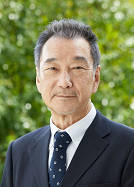
Dr. Masahide KIMOTO
President, National Institute for Environmental Studies, Japan
Dr. Masahide Kimoto received Ph.D. in atmospheric sciences from University of California, Los Angeles in 1989. His main fields of study are climate dynamics, predictability, and human impacts on the climate system. He is president of National Institute for Environmental Studies and professor emeritus of the University of Tokyo. He was a member of Joint Scientific Committee of World Climate Research Programme (WCRP), a review editor of IPCC AR6 (Working Group I) and a lead author of IPCC AR5.
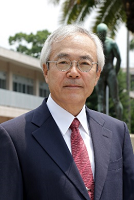
Prof. Shigeru KOHNO, M.D., Ph.D.
President, Nagasaki University, Japan
Prof. Shigeru Kohno is the President of Nagasaki University since Oct. 2017. He holds a medical degree and a Ph.D. and taught as a professor in the infectious and molecular pathogenesis department. His former students are now leading researches on infectious diseases, respiratory medicine, and mycology at many institutions. He has received many distinctions, including the Futaki Award, the Japanese Society for Medical Mycology Award, the ISC Meritorious Membership Award, and the Kiyoshi Shiga-Sahachiro Hata Award. He served as Dean of the graduate school of medicine and as Director of Nagasaki University Hospital from 2009 to 2015. Then he chaired the board of Nagasaki University as Vice president and Trustee since 2014. President Kohno declared that Nagasaki University contributes to “Planetary Health” through research and educational activities and demonstrates leadership in this university-wide action.
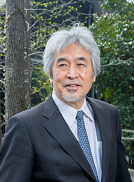
Prof. Juichi YAMAGIWA
Director - General, Research Institute for Humanity and Nature, Japan
Juichi Yamagiwa is the Director-General of Research Institute for Humanity and Nature. He is a world-renowned researcher and expert in the study of primatology and human evolution. He was awarded Doctor of Science from Kyoto University in 1987. After holding positions at the Karisoke Research Center, Japan Monkey Center, and Primate Research Institute Kyoto University, he has been Professor of Graduate School of Science at Kyoto University since 2002. He was Dean of Graduate School and Faculty of Science from 2011 to 2013 and has been the 26th President of Kyoto University from 2014 to 2020. Dr. Yamagiwa has also served as President of International Primatological Society from 2008 to 2012, and as the Editor in Chief of Primates, a quarterly peer-reviewed scientific journal of primatology published by Springer Science+Business Media from 2010 to 2014. In Japan, he served as the president of the Japan Association of National Universities, the president of Science Council of Japan, and is now the member of Environmental Policy Committee of Ministry of Environment. Dr. Yamagiwa’s passion for fieldwork research frequently made him travel to Africa, such as Rwanda, Republic of the Congo, and Gabonese Republic, where he discovered an abundance of new findings related to gorillas, through his unique viewpoint of evolution.
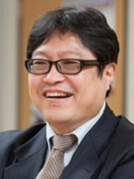
Prof. Kensuke FUKUSHI
Vice Director, Institute for Future Initiatives, The University of Tokyo, Japan
Kensuke Fukushi is Professor and Vice Director of the Institute for Future Initiatives (formerly Integrated Research System for Sustainability Science, IR3S), The University of Tokyo (UTokyo). He is also an Academic Programme Officer at the United Nations University Institute for the Advanced Study of Sustainability. His research interests include environmental engineering, risk assessment, climate change effect, water resource, biological technology, membrane technology. His research projects cover the integrated climate assessment – risks, uncertainties and society, establishment of research platform for developing models to predict future health risks posed by changes in climate, land use and population, development of international network for sustainability science and on health risk assessment in urban area.
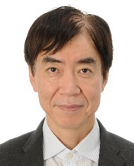
Dr. Naoya TSUKAMOTO
Director, AIT Regional Resource Centre for Asia and the Pacific, Thailand
Dr. Naoya Tsukamoto obtained Ph.D. of Sustainability Science from Hosei University, Master of Environmental Science from Johns Hopkins University, in 2005 and a Bachelor of Physics from University of Tokyo, 1985. He started his professional career at the Ministry of the Environment of Japan in 1985. During 2005-2008, he served as the Head of Japanese Delegation to the IPCC/AR4. During 2014-2016, he worked for the Institute for Global Environmental Strategies (IGES) as Secretary-General/Principal Researcher. During 2016-2018, he serves as Project Director under the United Nations University, Institute for the Advanced Study of Sustainability (UNU-IAS). He is current responsibility is Director of Regional Resource Centre for Asia and the Pacific (RRC.AP) in Asian Institute of Technology (AIT), Bangkok, Thailand.
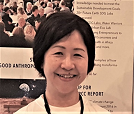
Dr. Fumiko KASUGA
Global Hub Director - Japan, Future Earth, and Senior Fellow, National Institute for Environmental Studies, Japan
After graduated from and received Ph.D. from The University of Tokyo, Dr. Fumiko Kasuga has been working on food safety risk assessment and epidemiology of foodborne diseases, as a government researcher in the Ministry of Health, Labour and Welfare (MHLW) of Japan. Formerly, she was a Director at the National Institute of Health Sciences. Internationally she worked with WHO and FAO as a technical advisor. When she served as Vice-President of Science Council of Japan in charge of international activities (2011-2014), she helped inviting a part of the Future Earth global Secretariat to Japan. At Future Earth, she facilitates research collaboration across the disciplines and promotes co-design of sustainability science with stakeholders. She is also Visiting Professor, Institute for Future Initiatives (IFI), The University of Tokyo.
Keynote Speeches
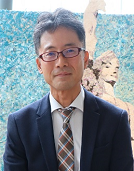
Dr. Michiru NISHIDA
Professor, Research Center for Nuclear Weapons Abolition (RECNA), Nagasaki University, Japan
Michiru Nishida is a Professor at Research Center for Nuclear Weapons Abolition, Nagasaki University. He has long worked on arms control, disarmament and non-proliferation issues in the Government of Japan as Special Advisor for Arms Control, Disarmament and Non-Proliferation Affairs, including postings to the Embassy of Japan to the United States in Washington D.C., the Arms Control and Disarmament Division, the Delegation of Japan to the Conference on Disarmament, and the Non-Proliferation, Science and Nuclear Energy Division. Professor Nishida holds an MA in International Policy Studies with a certificate on non-proliferation from the Middlebury Institute of International Studies at Monterey and a Ph.D. (Law) from Hitotsubashi University.
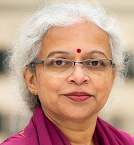
Dr. Leena Srivastava
Deputy Director General for Science, International Institute for Applied Systems Analysis (IIASA), Austria
Leena Srivastava is the Deputy Director General for Science of the International Institute for Applied Systems Analysis (IIASA), Austria. Prior to this, she was the Vice Chancellor of the TERI School of Advanced Studies, New Delhi – an inter-disciplinary higher education institution, focused on sustainable development – since 2012. She has over three decades of research experience in the areas of energy, environment and climate change policies at The Energy and Resources Institute (TERI), including nearly nine years as its Executive Director. She has a Masters in Economics from the University of Hyderabad and a PhD in Energy Economics from the Indian Institute of Science in Bangalore, India.
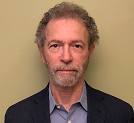
Prof. Ilan Chabay
Head of Strategic Research Initiatives and Programmes, Institute for Advanced Sustainability Studies Potsdam (IASS), Germany
Ilan Chabay is Head of Strategic Science Initiatives and Scientific Project Leader of the KLASICA (Knowledge, Learning, and Societal Change Alliance) at the Institute for Advanced Sustainability Studies (IASS) in Potsdam Germany and Adjunct Professor in the School of Sustainability, Arizona State University. After his first ten-year career of innovative research in laser physics and chemistry, he became associate director of The Exploratorium Science Museum (San Francisco), then for 18 years founder and president of a Silicon Valley company that designed and produced interactive exhibitions for 230 museums around the world, including Disney, the Smithsonian, and NASA. In 2006 he began his current third career in sociology and sustainability science, focusing on understanding the narratives of vision and identity in communities and how they influence collective behavior change toward sustainable futures. In addition to research and 80+ publications in both natural and social sciences, he continues designing games to inspire people to reach for a more sustainable future.
Flash talks
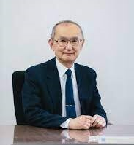
Prof. Kazuhiko MOJI
Dean, School of Global Humanities and Social Sciences, Nagasaki University, Japan
Kazuhiko Moji is a human ecology specialist, having been the leader of the Ecohealth Project between 2007 and 2013 at RIHN, Kyoto, Japan. His team had carried out research mainly in Laos, Vietnam, Yunnan-China, and Bangladesh. He received his MA (1978) and Ph.D. (1987) in Health Sciences at the University of Tokyo. He was Research Associate at the Department of Human Ecology at the University of Tokyo, Associate Professor in the Department of Public Health, and Professor at the Research Centre for Tropical Infectious Diseases, Nagasaki University Institute of Tropical Medicine before joining RIHN. He also studied at Harvard School of Public Health and Cambridge University Department of Biological Anthropology. He joined Nagasaki University again in 2013, served as Dean of School of International Health Development, and launched the new graduate school of Tropical Medicine and Global Health. He is currently a Dean of School of Global Humanities and Social Sciences, Nagasaki University.

Dr. Charissa FERRERA
Assistant Professor, University of the Philippines Marine Science Institute, Philippines
Dr. Charissa Ferrera is an Assistant Professor at the University of the Philippines Marine Science Institute (UP MSI). She obtained her PhD in Mechanical and Environmental Informatics at the Tokyo Institute of Technology, Japan, and Master of Science in Marine Science and Bachelor of Science in Chemistry degrees at the University of the Philippines. She started as a researcher on “red tide” or harmful algal blooms in 2005 and since then has been involved in multi-disciplinary research projects on chemical oceanography, marine biogeochemistry, eutrophication, ocean acidification, coral reefs, and blue carbon ecosystems. Recently, she is also engaged in trans-disciplinary research efforts through the development of science communication tools such as socio-environmental report cards. Dr. Ferrera is a recipient of various fellowship grants and scholarships and was awarded the L’Oréal-UNESCO For Women in Science Philippines National Fellow in 2018 and included in the Asian Scientist 100 list in 2019.
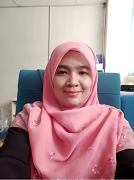
Dr. Asmawati Muhamad
Senior Lecturer, Applied Science with Islamic Studies Programme, Academy of Islamic Studies, Universiti Malaya, Malaysia
Dr. Asmawati Muhamad received her PhD in Qur’an and Sunnah Studies from the International Islamic University Malaysia (IIUM) in 2014. Sha has developed her research interest in Islam and Sustainability Science while writing her PhD thesis entitle Abatement and Control of Environmental Degradation: The Qur’anic Paradigm. Since 2016, she has started to lead the Green Mosque Project at Academy of Islamic Studies, Universiti Malaya (UM) under the purview of UM Community & Sustainability Centre (UMCares). She is very much passionate to streamline the Green Mosque initiatives and religious community advocacy in interfaith dialogue on Islam and Sustainability. She is the founder and advisor to the student’s volunteers club in UM, known as Imarah Eco-Friends (IEF) that advocate eco-mosque community engagement programmes in Kuala Lumpur with the motto of ‘Be Green, Be Exemplary.” https://umexpert.um.edu.my/asmawatimuhamad
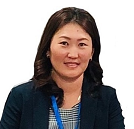
Dr. Suvdantsetseg Balt
Head, Administration and Planning Department, Mongolian Academy of Sciences, Mongolia
She is head of administration and planning department of Mongolian Academy of Sciences (MAS) and Secretariat of future Earth national committee for Mongolia. She obtained her PhD in Environmental governance science at Keio university, Japan (2012). Her research mainly focuses on environmental policy studies especially in rangeland degradation related to nomadic pastoralism, Climate change adaptations and its impacts to the herding communities’ livelihood in Mongolia and Inner Mongolia, China. Her main research expertise includes application of space and geospatial technologies in assessment of pastoral social ecological vulnerability, climate change impacts assessment, planning and its adaptation strategy, and sustainable development policy analysis. Currently she is managing leadership to contribute scientific outputs to the national policy making and implementations of international policies as such SDG’s at Mongolian Academy of science.

Ms. Novelia TRIANA
Graduate School of Fisheries and Environmental Science, Nagasaki University, Japan
I obtained Bachelor Degree of Forestry (2017) from University of Palangkaraya, Indonesia. Also I graduated my Master Degree in International master program of collaboration with Göttingen University and Dresden University at Vietnam National University of Forestry which focus on economic conservation research. Currently I am PhD student in Graduate School of Fisheries and Environmental Science, Nagasaki University. My research field and interests include environmental economics, valuation environmental service and climate change.

Ms. Huynh Thi Mai Lam
Master candidate, Graduate Programme of Sustainability Science and Global Leadership Initiative, the University of Tokyo
Lam Huynh is currently a Master student in Sustainability Science and Global Leadership Initiative at the University of Tokyo. She obtained her bachelor’s degree in Sustainability and Environmental Management from the University of Leeds, the UK. She previously served as a public officer in the People’s Committee in Vietnam from 2016 to 2019, specialising in urban planning and smart city development. She currently works on assessing the impacts of ecosystem services on human wellbeing. She also engages with research on mapping adaptation initiatives and assessing social vulnerability to climate change. Her research interests are evaluation of ecosystem services, human wellbeing assessment, urban planning and sustainability, and vulnerability and adaptation to climate change.
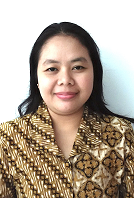
Ms. Desy Ekawati
Student, Graduate School of Natural Resources and Environmental Management Study Program, IPB University, Indonesia
A doctoral student of the third year in the Graduate School of Natural Resources and Environmental Management Study Program, IPB University, Bogor, Indonesia. She completed her master's degree from the Graduate School of Earth and Environmental Science, Kagoshima University, Japan, and she graduated from the Faculty of Forestry, IPB University. She is a forester and serves as government officials under the Ministry of Environment and Forestry (MOEF) with 20 years of experience in the field and management works. She started working on bamboo development in 2011 and became projects coordinator under the international cooperation of MOEF with the International Tropical Timber Organization (ITTO) in the year 2014-2017. She was continued as project coordinator for "community bamboo agroforestry" collaboration with ICRAF (the World Agroforestry Center) and ACIAR (Australian Center for International Agroforestry Research) in the year 2018-202. She was also co-founder of 1000 Bamboo Villages Movement in Indonesia in 2015.
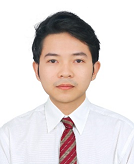
Dr. Tan Duc NGUYEN
Researcher, Department of Science and Technology, Graduate School of Engineering, Nagasaki University, Japan
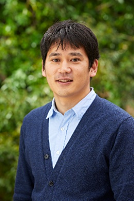
Dr. Shinichiro ASAYAMA
Senior Researcher, National Institute for Environmental Studies, Japan
Shinichiro Asayama is a Senior Researcher at Social Systems Division, National Institute for Environmental Studies, Japan. As an environmental social scientist, he studies the role of narratives and imaginaries in the societal debate around climate change. He is interested in understanding how people construct climate change as a narrative for social change (or non-change). His research is broadly focused on the politics of scientific knowledge and technological imaginaries in the science-policy interface of climate change. In particular, through interpretive and critical social science approaches, he studies the role of discourses, framings and narratives in shaping the public debates around the IPCC, carbon capture technologies and climate geoengineering.
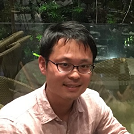
Mr. Hiroki Hashizume
PhD candidate, School of Tropical Medicine and Global Health, Nagasaki University, Japan
Hiroki Hashizume earned his Master of Science from Kobe University in Japan. He is currently in the third year of the School of Tropical Medicine and Global Health Ph.D. programme. He also belongs to the department of Eco-epidemiology, Institute of Tropical Medicine, Nagasaki University in Japan as a project researcher. His research interest lies in the area of infectious disease ecology in the field. Using molecular techniques or environmental DNA methods (a.k.a. eDNA), he attempts to develop novel survey methods and reveal dynamic changes in infectious disease distributions. By using eDNA methods, he is conducting three research topics across the world: mosquito ecology studies in Nagasaki, Japan, mycetoma (chronic fungal skin disease) in Sudan, and schistosomiasis (parasitic disease by blood flukes) in Lao PDR.
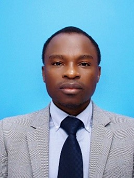
Mr. Obey GOTORE
PhD student, Graduate School of Engineering, Nagasaki University, Japan
OBEY GOTORE is currently a PhD student at Nagasaki University, Graduate School of Engineering undertaking Environmental Water Science program, majoring in adsorption materials for organic and inorganic removal from the water environment. His research interest mainly focuses of new, modernized, and low-cost biomass technologies in water and wastewater treatment for sustainable development and reuse in developing countries. Additionally, his research interest is extended to mass biomass production, nature-based methods (constructed wetlands), water and sanitation and irrigation engineering development. Had been a lecturer for more than five year at Harare Polytechnic, Zimbabwe before pursuing a master’s degree with Nagasaki University in 2017. He has published one peer-reviewed paper in Bioresources journal in 2021. The researcher also joined international conferences including the 2nd Maejo-Engineo International Conference on Renewable Energy (MEICRE 2018-Thailand) and International Conference on Chemical, Biological and Environmental Engineering (Conference-FORA, Zimbabwe, 2021).
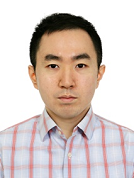
Dr. Bonjun KOO
Researcher, Research Institute for Humanity and Nature, Japan
Bonjun Koo is currently working as a researcher at the Research Institute for Humanity and Nature in Kyoto, Japan. He received his master's and doctoral degrees in Urban Management from Kyoto University. Previously, he worked for Global Green Growth Institute (GGGI) as Program Officer for green growth planning and implementation in Mongolia. He is interested in promoting participatory methods, including the use of narrative theory in understanding social dynamics in Mongolia and Japan.
Panel Discussion
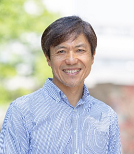
Dr. Seita EMORI
Deputy Director, Earth System Division, National Institute for Environmental Studies, Japan
Seita Emori joined National Institute for Environmental Studies (NIES), Japan as Researcher in 1997 after completing his doctorate in the University of Tokyo. In 2018, he was appointed as a Deputy Director for Center for Global Environmental Research, which was renamed as Earth System Division in 2021. He has been working concurrently as the Head of Social Dialogue and Co-production Office since 2016. He is a lead author for the Intergovernmental Panel on Climate Change (IPCC) 5th and 6th Assessment Reports (AR5, AR6).
Research interest:
Global climate model development
Climate change projection with a focus on precipitation and its extremes
Linking climate modelling with impact assessment
Global climate risk assessment and management
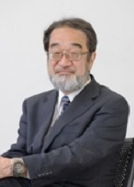
Prof. Akimasa SUMI
Professor Emeritus / Project Professor, Institute for Future Initiatives,The University of Tokyo, Japan
He was born in 1948 at Gifu City. He entered the University of Tokyo in 1967 and graduated from the department of Physics in 1971. After a two-year master course, he joined the Japan Meteorological Agency. He got a D.SC from UT in 1985 and moved to UT as an associate professor in the department of geophysics. In the University, he was engaged in many research fields, such as ENSO related research, and model development projects. He established CCSR (Center for Climate System Research) in 1991 and also engaged in Sustainability Science Project in 2001. He retired in 2013 and now is a Professor Emeritus. He is a former President of the National Institute of Environmental Studies (NIES).
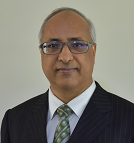
Prof. Shobhakar Dhakal
Vice President, Asian Institute of Technology (AIT), Thailand
Professor Shobhakar Dhakal is a professor and Vice President (Academic Affairs) of Asian Institute of Technology (AIT) in Thailand. He is also a Coordinating Lead Author (CLA) of IPCC’s Sixth Assessment Report (Mitigation) and a member of Scientific Steering Committee of Global Carbon Project. He was CLA of IPCC’s Fifth Assessment Report (Mitigation), and also co-led Second Assessment Report of on Climate Change in Cities of the Urban Climate Change Research Network. In the past, he served as Dean of School of Environment Resources and Development of AIT, Executive Director of Global Carbon Project in Japan, Research Scholar of International Institute for Applied Systems Analysis in Austria, and Senior Policy Researcher of Institute for Global Environmental Strategies in Japan. Prof. Dhakal received his Ph.D. from the University of Tokyo.
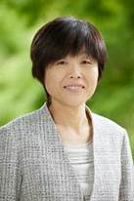
Dr. Yasuko KAMEYAMA
Director, Social Systems Division, National Institute for Environmental Studies, Japan
Dr. Yasuko Kameyama is Director of Social Systems Division, National Institute for Environmental Studies in Japan. Her background is international relations, and her main research topic has been on climate change regime building, and on sustainable development. She is appointed to various committees and councils related to environmental policies at national and prefectural levels, including those under Tokyo Metropolitan Government. One of her recent publications is Climate Change Policy in Japan: From the 1980s to 2015, from Routledge (2017).
Closing Remarks of Open Symposium
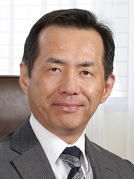
Prof. Takeshi NAGAYASU, M.D.,Ph.D.
Trustee, Nagasaki University, Japan
Prof. Nagayasu is a Trustee of Nagasaki University. He received his medical degree and Ph.D. from the Nagasaki University School of Medicine in 1987 and 1996. He started his career as a thoracic surgeon in the Department of Surgical Oncology while teaching in the Graduate School of Biomedical Sciences Nagasaki University. His research interests include lung cancer surgery and molecular oncology, bronchoplasty and tracheoplasty, lung transplantation, regeneration of trachea and lung, and development of medical devices. Currently, he leads Medical-Engineering Hybrid Professional Training Center as the Director. In addition, he has served as Director of the Nagasaki University Hospital for 2009- 2017 and Dean of School of Medicine for 2017-2019. Since 2019, as the current trustee, he has been dedicated to promoting research activities, social cooperation, and strategic planning at Nagasaki University.
Day2 Expert Session 1
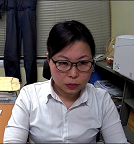
Prof. Chieko KONDOU
Professor, School of Engineering, Mechanical Engineering Program, Nagasaki University, Japan
Prof. Kondou is a professor at Nagasaki University. She was an engineer at Hitachi Appliances, Inc. from 2002 to 2009. In this period, she received her Ph.D. from Kyushu University. She then worked as a visiting scholar at the University of Illinois Urbana-Champaign for 2009-2010, where she studied the heat transfer of natural refrigerants near the critical point. She had appointed an assistant professor at Kyushu University in 2011, where she studied heat transfer and energy performance analysis for low-global warming potential refrigerants. She joined Nagasaki University in 2015. She teaches thermodynamics and heat transfer while conducting research projects on the measurement and prediction of the physical properties of new refrigerants.
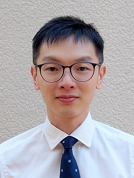
Dr. Chris Fook Sheng Ng
Associate Professor, Graduate School of Medicine, The University of Tokyo, Japan
Chris Fook Sheng Ng obtained his Bachelor of Science from the University of Nebraska-Lincoln, Master of Applied Statistics from the University of Malaya, and PhD in Health Science from the University of Tokyo. His research interest is in the field of environmental epidemiology, where he studies the effects of air pollutants, meteorological factors and global environmental changes on human health. Currently he is collaborating internationally to investigate the health effects of exposure to desert dust.
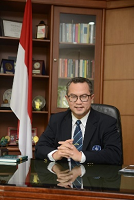
Prof. Arif Satria
Rector, IPB University, Indonesia
Prof. Arif Satria is the Rector of IPB University (a.k.a. Bogor Agricultural University). He previously served as Dean of the IPB Faculty of Human Ecology (2010–2017) and as a lecturer in the Department of Social Economics for Fisheries. He served as Chairman of the Indonesian Rectors' Forum 2020 - 2021. In 2012, he also served as an adviser to Indonesia's Minister of Marine and Fisheries. Since 2002, Prof. Arif Satria has been actively involved in the development of marine and fisheries policies, including the development of the Blue Economic Concept and a number of Government and Ministerial Regulations. He visited the University of British Columbia in Canada as a visiting fellow. He earned a bachelor's degree in socioeconomics from IPB University's Faculty of Agriculture and a master's degree in rural sociology from the same institution. He earned a PhD in Marine Policy from Kagoshima University in Japan.
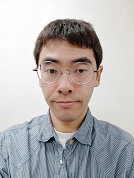
Prof. Takahiro OTA
Associate Professor, Faculty of Environmental Science, Nagasaki University, Japan
2015- Current position
2013-2014 Assistant professor, College of Policy Science, Ritsumeikan University
2010-2012 Doctor course, Civil engineering, Nagoya University (Dr. of Engineering)
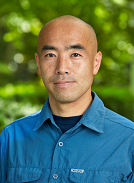
Dr. Kiyoshi TAKAHASHI
Deputy Director, Social System Division, National Institute for Environmental Studies, Japan
Kiyoshi Takahashi earned a B.S. in the Department of Sanitary and Environmental Engineering and a Ph.D. in Engineering from Kyoto University. He started to work for NIES in 1996 and has been engaged in the development of the Asia-Pacific Integrated Model (AIM) since then. He is in charge of the development of global impact analyses modules in AIM. Regarding the experiences in international collaborative activities, he was a lead author for IPCC-AR4-WG2 (Chapter 17: Assessment of adaptation practices, options, constraints and capacity), IPCC-SREX (Chapter 4: Changes in impacts of climate extremes: human systems and ecosystems) and IPCC-AR5-WG2 (Chapter 19: Emergent risks and key vulnerabilities). He is also a committee member of for ICONICS (International Committee on New Integrated Climate change assessment Scenarios. His current research focuses on the integrated analyses of climate policies for simultaneous realization of the Paris Agreement and the SDGs.
Website: https://www.nies.go.jp/researchers-e/100053.html
Publications: https://www.researchgate.net/profile/Kiyoshi-Takahashi-3
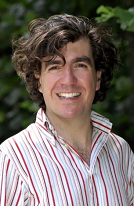
Prof. Alan Dangour
Professor, London School of Hygiene and Tropical Medicine, United Kingdom
Alan is Professor of Food and Nutrition for Global Health and Director of the Centre on Climate Change and Planetary Health at the London School of Hygiene & Tropical Medicine.
Alan’s research focusses on the connections between the environment, food systems and health. Alan runs a large portfolio of interdisciplinary and intersectoral research with an international focus that he has developed with an exciting team of researchers with expertise in epidemiological and mathematical modelling, soil and agricultural science, environmental assessment, climate science, nutrition and health.
From 17th January 2022, Alan is Director of Climate and Health at the Wellcome Trust.
Expert Session2
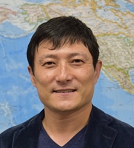
Dr. Hiroshi TANIMOTO
Head, Global Atmospheric Chemistry Section, Earth System Division, National Institute for Environmental Studies, Japan
Hiroshi Tanimoto is the Head of Global Atmospheric Chemistry Section at National Institute for Environmental Studies (NIES) in Tsukuba, Japan. He received his PhD in Chemistry from The University of Tokyo in 2001. Dr. Tanimoto has been working in the field of atmospheric composition in Asia and Oceania regions. His group develop techniques for measuring and modeling trace gases and aerosols of atmospheric importance, make laboratory experiments to reveal the formation and reaction mechanisms, observe spatial and temporal variations using ground-based, ship, aircraft, and satellite platforms, and simulate emissions, transport, transformation, and deposition processes. He currently serves as the co-chair of IGAC-MANGO and CEOS AC-VC, and previously served as the co-chair of the IGAC project.
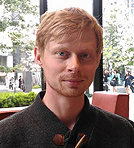
Dr. Giles B. SIOEN
Science Officer at Future Earth and Research Associate at the National Institute for Environmental Studies, Japan
Dr. Giles B. Sioen Co-Leads the Research and Innovation team at Future Earth, which consists of 27 Science Officers corresponding to 27 Global Research Networks. In addition, he coordinates the Future Earth Urban and Health Knowledge-Action Networks, conducts research, and supports a range of domestic projects and activities. His research focuses on the development of a transdisciplinary system-based guideline to reduce the impact of climate change and other disasters on cities and health. Before joining Future Earth, he worked as a project researcher at the Graduate School of Frontier Sciences of the University of Tokyo in collaboration with Massachusetts Institute of Technology - System Design and Management Program. Dr. Sioen holds a Ph.D. in Sustainability Science from the University of Tokyo, a Master’s degree in Urban Planning and Design from KU Leuven (Luca-Arts, campus Ghent), and a Bachelor’s degree in Garden and Landscape Architecture from University College Ghent.
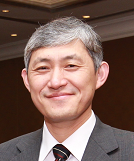
Dr. Jiang Kejun
Senior researcher, Energy Research Institute, Chinese Academy of Macro-Economic Research, China
Kejun Jiang’s research focus is energy, climate change mitigation and air pollution prevention policy assessment by using IPAC modeling, to support national five year plans, and long-term planning. He began his research in ERI from 1990, and led the development of Integrated Policy Assessment Model for China(IPAC). IPAC modeling team is now a leading research team on China’s 2050 energy transition studies by providing benchmark research results. He also was LA and CLA for IPCC reports, and authors of WEOs, Emission Gap reports by now.
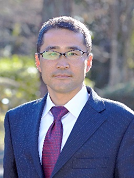
Dr. Tatsuya HANAOKA
Head, Global Sustainability Integrated Assessment Section, Social Systems Division, National Institute for Environmental Studies, Japan
Dr. Tatsuya Hanaoka is the head of the global sustainability integrated assessment section in the social system division at NIES. He is one of members of the AIM (Asia-Pacific Integrated Model) team and has been in charge of developing the bottom-up type model, named the AIM/Enduse model, from the global to national level, especially focusing on Asia regions. His key research interests are 1) multi-regional and multi-sectoral bottom-up modeling, 2) emissions scenarios on GHGs (Greenhouse Gases), SLCFs (Short-Lived Climate Forces), air pollutants, ODSs (Ozone Depleting Substances) and heavy metal, etc., 3) co-benefits and trade-off analyses on emissions mitigations and those impacts due to different combinations of mitigation measures, and 4) impacts of behavior changes on service demand projections and sustainable development.
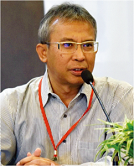
Prof. Dr. Rizaldi Boer
Executive Director, Centre for Climate Risk and Opportunity Management, IPB University, Indonesia
Rizaldi Boer is a Professor at the IPB University, Indonesia and currently Executive Director of Centre for Climate Risk and Opportunity Management in Southeast Asia and Pacific of IPB University. He received doctoral degree from University of Sydney, Australia in 1994. He has been working on climate change mitigation and adaptation, particularly on agriculture, forest and other land uses since 1998. He involved in many international scientific teams, national research missions and several scientific projects of the United Nations and high-level global players. He had been appointed as Chairperson of the RA-V Region Agricultural Meteorology Working Group (2002-2009) for WMO and member of the Task Force Bureau for the IPCC Greenhouse Gas Inventory (2008-2015), and now serves as Chairman of the Expert Board of the Indonesian Agriculture Meteorology Society, as well as Member of the Advisory Board for the Asian Greenhouse Gas Inventory Working Group (WGIA), and the Asian Low Carbon Research Network (LoCaRNet).
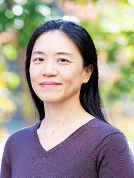
Dr. Tomoko SHIRAI
Head, Global Carbon Project Tsukuba office, National Institute for Environmental Studies, Japan
Tomoko Shirai finished her PhD in the department of chemistry, Graduate school of science at the University of Tokyo. Thereafter, she worked as an engineer at the Earth Observation Research Center of National Space Development Agency of Japan (currently JAXA). Since February 2002 she joined the Roland/Blake laboratory of the chemistry department at University of California, Irvine as an associate research specialist. She joined National Institute for Environmental Studies in 2004. Her main research interest has been environmental impact of atmospheric trace gases, especially greenhouse gases (CO2, CH4, N2O,...), halocarbons and nonmethane hydrocarbons (NMHCs). She also fosters open science as the head of Office for Global Environmental Data Integration and Analytics. She is appointed head of GCP (Global Carbon Project) Tsukuba office since April 2021.
Expert Session3
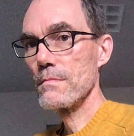
Prof. Hein Mallee
Deputy Director - General, Research Institute for Humanity and Nature, Japan
Hein Mallee is a social scientist based at the Research Institute for Humanity and Nature in Kyoto, Japan. He has worked as a researcher, funder, and practitioner in China, Southeast Asia and Japan for the past 25 years. His work is usually interdisciplinary/ intersectional and evolves around themes such as poverty alleviation, rural development, natural resource management, and emerging infectious diseases. He is the Director of the Regional Center for Future Earth in Asia.
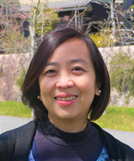
Dr. Ria Adoracion Lambino
Specially Appointed Associate Professor, Research Institute for Humanity and Nature, Japan
Ria Lambino is based at the Research Institute for Humanity & Nature (RIHN) in Kyoto as Specially Appointed Associate Professor. She received her PhD and Masters from Kyoto University Graduate School of Global Environmental Studies. She has a degree in Applied Physics, but has spent most of her professional career as a practitioner and researcher focusing on environmental conservation and sustainability, with significant experience in the Philippines and in Japan. Prior to joining Future Earth, she worked for WWF Philippines as Vice President for Sustainable Production and Market Engagement and had been involved in transdisciplinary research on watershed governance at RIHN. Her research interests include environmental policy and governance, protected areas & management, renewable energy, water issues, sustainable agriculture & fisheries and sustainable consumption and production.
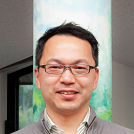
Dr. Takehito Yoshida
Associate Professor, Research Institute for Humanity and Nature & Department of General Systems Studies, University of Tokyo (jointly affiliated), Japan
Takehito Yoshida is an ecologist and limnologist who studies diversity and complexity of organisms and ecosystems from the viewpoints of adaptation and system dynamics, and explores human-nature interactions and sustainability in local communities in Japan. Trained in Kyoto University (PhD) and Cornell University (postdoc), he was a member of the faculty at the University of Tokyo at Komaba before assuming joint appointments at RIHN and the University of Tokyo. At RIHN, he is leading a transdisciplinary research project entitled “Research and Social Implementation of Ecosystem-based Disaster Risk Reduction as Climate Change Adaptation in Shrinking Societies”.
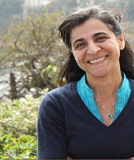
Dr. Chadia Wannous
Steering Committee Member, Health Knowledge-Action Network, Future Earth, Sweden
Dr. Wannous is a public health professional with over twenty years of experience in health emergencies preparedness and response and risk reduction and strengthen the resilience of communities and systems. Dr. Wannous coordinated the implementation of the health components of the Sendai Framework for Disaster Risk Reduction and led the Science and Technology Partnership and Advisory Group at the UN Office for Disaster Risk Reduction (2015-2017). She was the Senior Policy Advisor to the UN Special Envoy on Ebola response in West Africa (2014-2015) and to the UN System Influenza Coordination (2011-2015). She is the coordinator of the Toward a Safer World (TASW) Network- for Pandemic Preparedness’ since 2011. She is member of the Steering Committee of the Future Earth Knowledge Action Network on Health, and the Scientific Committee of EcoHealth Alliance One Health project. Dr. Wannous is also member of the IPBES Expert Group on biodiversity and pandemics report.
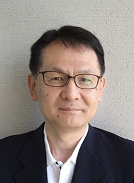
Mr. Junya Tani
Senior Researcher, Center for Global Commons, The University of Tokyo, Japan / Senior Advisor, Japan Hub, Future Earth
Junya Tani has a background for many years in the finance business working for some global financial institutions (Bank of Tokyo (currently MUFG), Citigroup, UBS, Credit Suisse, and DBS). After retired from the business, he has been engaged in various social activities related such areas as welfare for mentally and intellectually disabled persons, education, local community revitalization, and global environmental crisis. In the field of global environmental crisis, he started his activities in 2018 by translating “Big World Small Planet” by Johan Rockström and Mattias Klum together with Dr. Naoko Ishii and Institution for Global Environmental Strategies (IGES). Currently, he is engaged in Japan Hub of Future Earth as Senior Advisor and Center for Global Commons of the University of Tokyo as COO/Senior Researcher.
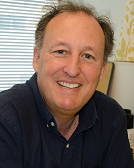
Prof. Maurie Cohen
Professor, Department of Humanities and Social Sciences, New Jersey Institute of Technology, United States of America
Dr. Maurie Cohen is Chair of the Department of Humanities and Social Sciences and Professor of Sustainability Studies at the New Jersey Institute of Technology. He is additionally the founding and current Editor of the journal Sustainability: Science, Practice, and Policy which was established in 2005 (and is currently published by Taylor & Francis) and a member of the Management Team member of the Future Earth Knowledge-Action Network on Systems of Sustainable Consumption and Production. His books include Sustainability (Polity Press), The Future of Consumer Society: Prospects for Sustainability in the New Economy (Oxford University Press), and Social Change and the Coming of Post-consumer Society (Routledge). Cohen received his PhD. in regional science from the University of Pennsylvania in 1993.
Summary of the Forum
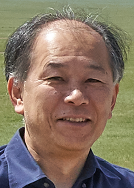
Prof. Chiho WATANABE
Professor/ Executive Advisor to the President (Planetary Health), School of Tropical Medicine and Global Health, Nagasaki University, Japan
Prof. Chiho Watanabe has been in the current position since April 2021. He completed his Ph.D. (health science) at the University of Tokyo, Japan in 1991. He was a Professor of the University of Tokyo from 2005 to 2017, then President of the National Institute for Environmental Studies from 2017 to 2021. Having a background in toxicology and nutrition, he has conducted many experimental and field studies on toxicant-nutrient-life style interactions and their health impacts in Asian populations. He has also been engaged in several inter-disciplinary projects/initiatives associated with the issue of sustainability and health. He serves as president of the Japanese Society of Health and Human Ecology, Society of Environmental Science Japan, former vice-president of the Society of Human Ecology (international), Steering Committee member for Health KAN, Future Earth.
Closing Address

Dr. Yuichi MORIGUCHI
Vice President, National Institute for Environmental Studies, Japan
He joined National Institute for Environmental Studies (NIES) in 1982, engaged in wide range of environmental research at NIES until 2011. After appointed to the Director of the Research Center for Material Cycles and Waste Management of NIES for 2005-2011, he moved to the University of Tokyo as of April 2011. He is vice president of NIES since April 2019, retired from the University of Tokyo as of March 2021 after the cross-appointment for two years. In his early career, he had also worked for the Environment Agency of Japan and for the OECD Environment Directorate in Paris. He contributed to the UNEP International Resource Panel for 2007-2016 as one of the inaugural members. He was awarded the 2013 Society Prize of International Society for Industrial Ecology. He was the previous president of The Institute of Life Cycle Assessment, Japan. His research field covers Industrial Ecology, post-disaster environmental management, etc.
-
January 20 – 21, 2022, Online (Zoom)
-
January 19 – 20, 2021, Online Webinar style (Zoom)
-
January 21 – 22, 2020, at Novotel Yangon Max Hotel, Yangon, Myanmar
-
January 23 – 24, 2019, at Pan Pacific Hanoi, Vietnam
-
January 23 – 24, 2018, at Seri Pacific Hotel, Malaysia
-
January 26 – 28, 2017, at Udayana University, Indonesia
-
January 27 – 28, 2016, at Asian Institute of Technology, Thailand
